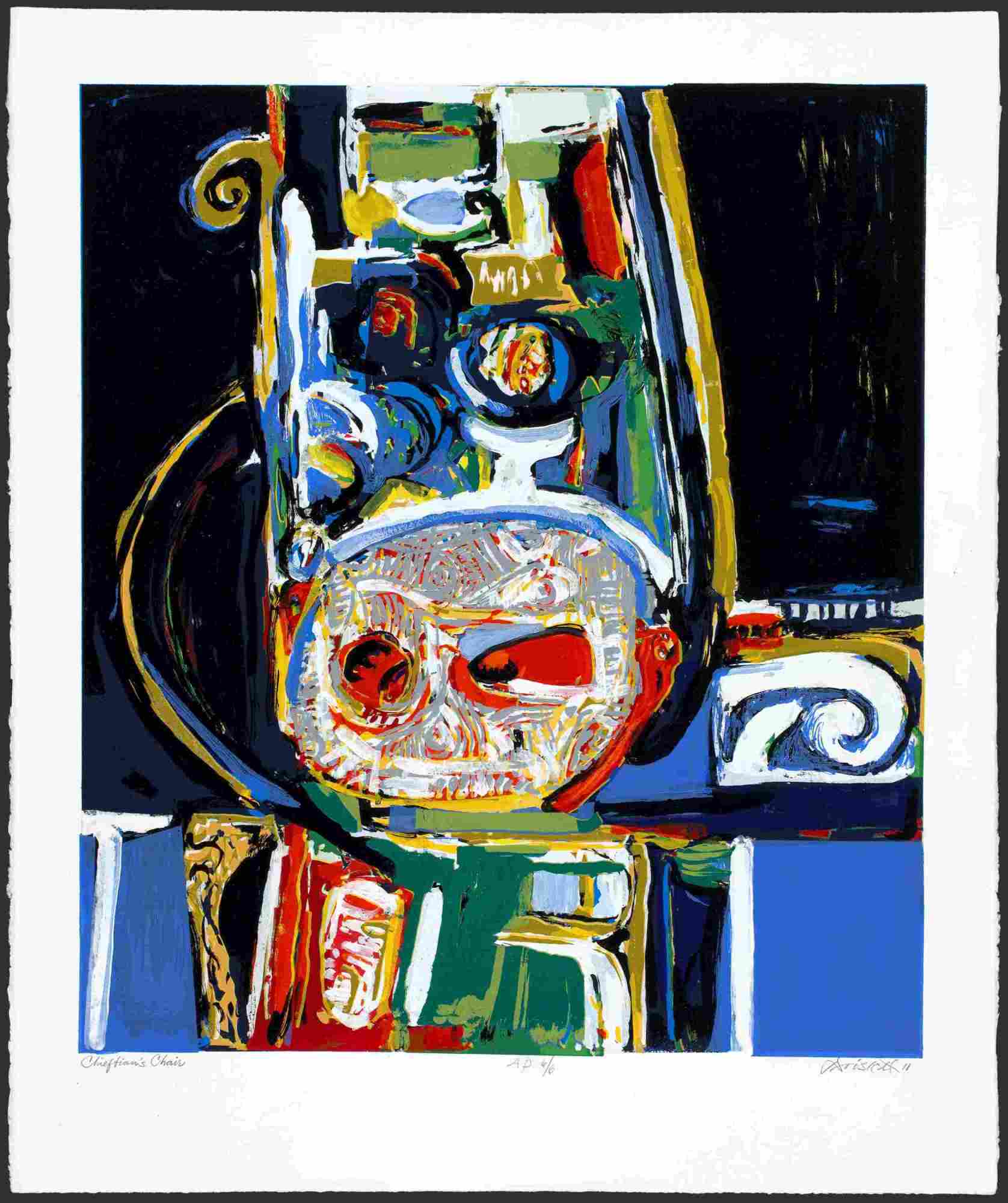
Mystic Museum of Art (MMoA) Presents Printmaking and the Unconventional Pathways of African American Artists
Mystic Museum of Art (MMoA) announces its special summer exhibition Printmaking and the Unconventional Pathways of African American Artists, from June 28 through October 13. Curated by artist, master printmaker, and scholar Dr. Curlee Raven Holton, this exhibition celebrates the creative practice of African American artists, whose histories and cultures remain largely unrecognized in the US. It asks how these artists forged their own pathways to distinguished artistic careers, when conventional access was denied to them; and finds answers in their innovative use of printmaking as a primary artistic medium, a forum for collaboration, and a democratic means of circulating their art.
“Remarkable individuals have found their way past discriminatory barriers, as exceptions to the rule,” said Executive Director and Chief Curator V. Susan Fisher. “These new pathways have led not only to extraordinary works of art, but to a richer, more comprehensive conversation that we can have as a country and as members of a global community.”
Developed in association with Raven Fine Art Editions, this important exhibition traces the journeys of these exceptional artists—and asks how we can change the rule.
Historically, the conventional path to a career in the arts led through the study of neoclassical painting and sculpture in the academies of Europe and the US, to the patronage of the elite. Access to wealthy patrons and familiarity with their tastes and traditions were paramount.
African and African American artists have been excluded from such access. The tastes and traditions of the affluent were, in general, far removed from the lived experience of formerly enslaved peoples and their descendants, whose histories and cultures were suppressed by mainstream cultural, historical, and economic convention.
The Pathways exhibition features a century of important artworks by 44 African American artists, from the Harlem Renaissance to the present, from Loïs Mailou Jones, Romare Bearden, Elizabeth Catlett, and Jacob Lawrence to Faith Ringgold, David Driskell, Sam Gilliam, and Kevin Cole. It provides a gateway for audiences to whom much of this art and its history is unknown. It will also enrich the understanding of regional, national, and international audiences through the first-person experience of Dr. Curlee Raven Holton, the exhibition’s guest curator.
(next page)
With a distinguished background as an artist, a master printmaker, a scholar, and an educator, Dr. Holton served as the Director of the David C. Driskell Center for the Study of Visual Arts & Culture of African Americans & the African Diaspora. Prior to his work at the Driskell Center, he was the David M. and Linda Roth Professor of Art at Lafayette College. Holton was of the first three endowed African American Professors in Art in the United States. It was at Lafayette College that Holton founded the Experimental Print Institute (EPI), where he and his team collaborated with prominent artists-in-residence from a variety of fields (sculpture, painting, drawing, and collage, as well as printmaking) on innovative print-based projects.
Holton will share the experience of artists of color as they found “a way out of no way”—to creative careers and compelling voices in American art. Their unconventional means drew on shared space, equipment, and materials in community-based organizations, rather than on solitary work in individual studios with the goal of competing for the honors of the Academy, and experimentation rather than neoclassical technique. Holton will focus on how printmaking, a largely disregarded but versatile medium, uniquely served their purposes by keeping costs low, experimentation and innovation high, and by reaching a wide public as a truly democratic art form. His insights derive from decades of work in close collaboration with the artists in the exhibition, to arrive at a vibrant assertion of their creative identity and vision.
Unspoken conventions of class and prestige limit our national conversation. Printmaking and the Unconventional Pathways of African American Artists offers the public a perspective on discrimination and resilience in order to encourage a deeper conversation about ourselves, each other, and how we choose to live together.
When: June 28 to October 13, 2024, hours: 11 AM to 5 PM daily.
Where: Mystic Museum of Art (MMoA) 9 Water Street, Mystic, CT 06378 Cost: $10, free to children under 12, military veterans, active military, and their families For more information: 860.536.7601
Website: MysticMuseumofArt.org
About Mystic Museum of Art (MMoA):
MMoA has served as a social and cultural hub in southeastern Connecticut for more than 100 years. Founded in 1913 as the Mystic Art Association, the museum now engages visitors in richly curated exhibitions, interpretive activities, studio classes, and outreach programs. MMoA’s mission is to inspire creativity and critical dialogue by engaging the regional community in the understanding, appreciation, and practice of visual art.
MMoA is generously supported by The Kitchings Family Foundation and CT Humanities (CTH), with funding provided by the Connecticut State Department of Economic and community Development/Connecticut Office of Arts (COA) from the CT State Legislature
IMAGES:
1)Michael C. Gibson (b. 1962), Crowned in her Glory, 2022, serigraph, 28” x 37” 2)Willie Cole (b. 1955), Ogun Sisters, 2012, mixed media, 25 x 31”
3)David C. Driskell (1931 – 2020), Chieftain’s Chair, 2011, serigraph, 27” x 30.5”



page 2
